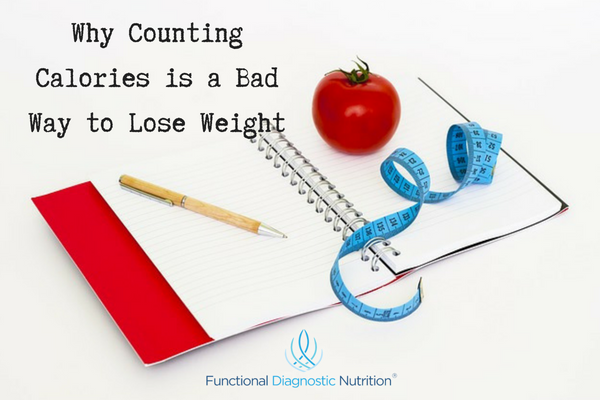Almost everyone knows that doing more exercise and reducing calorie consumption will promote weight loss. But if weight loss is this simple, then why are so many people failing miserably despite their desperate efforts? While it may be a result of laziness for some, it’s more often a result of calorie restriction and exercise being used inappropriately.
Despite how many people make drastic but temporary changes to lose weight, long term success is highly dependent on making less drastic changes that are permanent. It’s common for people to be overzealous with calorie restriction or exercise, and although it may initially be effective, these practices are eventually likely to lead to fatigue, a raging appetite that can no longer be resisted, compromised health, and an eventual return to old habits. This is why so many people regain the weight they’ve worked so hard to lose and continue to repeat this cycle until they eventually give up and choose to accept being overweight.
Would You Do This to Your Car?
Imagine a hypothetical scenario where you compromise on the quality of gas that you put into your car. You need to drive the car an extra 200 miles each week to prevent the impurities in the low quality gas from settling and causing buildup that can damage the engine. The extra mileage would accumulate to more than 10,000 miles per year and put a lot of unnecessary wear and tear on the car. The car would probably be ready for the junk yard much sooner than normal, and choosing to use lesser quality gasoline would obviously be a tremendous mistake. In addition, driving the additional 200 miles each week would waste a lot of time, even if you enjoy driving.
This scenario sounds ridiculous in regard to a car, but yet it’s exactly what most people do to lose weight. They regularly eat lesser quality food and end up trying to compensate by exercising frantically to burn calories. In the process, they put a lot of unnecessary burden on their bodies and waste a lot of time.
Frequent exercise causes the breakdown of body tissue which then needs to be rebuilt. This requires good nutrition and adequate rest. Most people who exercise for weight loss will also restrict their calories, but will do so without paying much attention to food quality. Between the calorie restriction, lesser quality food, and frequent exercise that is usually coupled with inadequate rest, full recovery will never happen and the body will gradually continue to break down. Eventually, the compromised health that this can cause may manifest as tiredness, irritability, poor concentration, and weakened immunity, all of which are symptoms of adrenal fatigue. Like the car that accumulates many unnecessary miles each year, your body will be ready for the junk yard well before its time. Although the human body is extremely resilient and can withstand a lot of abuse, there are much better ways to lose weight without testing this limit.
Not All Calories are Created Equal
Even dietitians and nutritionists are known to oversimplify weight loss to being a matter of “calories in vs. calories out” which basically means to consume fewer calories than you burn. However, this relies on the flawed assumption that all calories are the same regardless of the type of food that they come from. Fat, protein, and carbohydrates are each used for different physiological purposes, and although each of these macronutrients can often be broken down and reassembled as needed, this isn’t always the case and sometimes has negative consequences. Furthermore, how these macronutrients are processed can vary based on the individuality of one’s metabolism. In other words, 100 calories worth of protein will not be digested and utilized the same way 100 calories of carbohydrates would be, and the differences can vary by individual.
It’s absurd to think that eating 2,000 calories of carbohydrate per day would have the same physiological influence as eating 2,000 calories of all protein. Clearly, this is an extreme exaggeration, but so is the overstated simplicity of losing weight by creating a calorie deficit. Furthermore, many people are excessive with calorie restriction and it’s difficult to maintain consistent weight loss by doing this because the body will adjust to the decreased intake of nutrients and reduce metabolism to conserve resources. It’s also difficult to overcome the increased appetite that results, and when excessive calorie restriction is combined with excessive exercise, which is often the case, appetite will increase even more.
Although carbohydrates are our primary source of energy, fat is also important for energy production and is actually used by the body for long term energy storage. When necessary, protein can be used as a source of energy as well. As such, all of the three primary macronutrients can be used for energy, but carbohydrates can’t satisfy all of the needs that protein and fat do for the repair and development of body tissue. Clearly, our diets need to provide a balance of these macronutrients, and this balance should be based more so on optimal health and metabolic individuality than weight loss. Unless health issues are involved, weight loss tends to result naturally from a diet that promotes optimal health. However, partly as a result of deceptive advertising and food labels, many people are confused by the misconceptions of what a truly healthy diet really is.
Why Low Fat Diets are a Bad Idea
A gram of fat contains more the twice as many calories as a gram of protein or carbohydrate. As such, it’s one of the first things to be removed from the diet by someone looking to cut calories, especially given the popularity of low fat diets for both health and weight loss. Despite this, fat is very important to our health, and this has been made obvious in part by the increasing awareness of the benefits of essential fatty acids. Even saturated fat is necessary for good health despite the misconception that dietary fat causes heart disease. Furthermore, as shown by the important work of Dr. Weston A. Price, dietary animal fat is an important source of the fat soluble vitamins A, D, E, and K which are critical to good health and proper development.
Another important consideration regarding fat consumption is its role in energy production. People who eat less carbohydrate tend to rely more on fat as a source of energy which decreases the likeliness of it being stored as body fat. Ironically, most people who follow a low fat diet eat an excessive amount of carbohydrates to compensate, and as a result, can be much more likely to gain weight. While an excess of either carbohydrate or fat can cause weight gain, most people would be better served by reducing their consumption of carbohydrates rather than fat.
A Better Perspective on Losing Weight
As I mentioned earlier, it’s much better to lose weight by eating healthy than to compensate for poor eating habits with excessive exercise and calorie restriction. The first approach will allow you to lose weight while also improving your health and overall quality of life, but the latter approach is much more likely to improve your appearance at the cost of your health. Exercise can indeed accelerate weight loss, but it shouldn’t be necessary to do much more than what’s required to maintain good health. Calorie restriction can promote weight loss as well, but done in excess, it can also cause nutritional deficiencies and even prevent weight loss. Besides, even if calorie counting were a good idea, the calorie information on nutrition labels is often inaccurate.
As you can hopefully see, the ideal situation is for optimal health to be the primary goal and to allow weight loss to naturally occur as a secondary benefit. This applies in regard to both diet and exercise. In fact, this is exactly how I lost 30 pounds in 3 months. I had no intentions of losing weight, and at the time, didn’t even know I had 30 pounds to lose. In addition, because I was at my worst stage of chronic fatigue, I wasn’t exercising much at all because I simply couldn’t do so without making myself feel worse.
A Healthier and More Simple Way of Eating to Lose Weight
Following a truly healthy diet can require a lot of dedication, but fortunately, it can also be very simple. The key is eliminating sugar and processed foods as much as possible which can automatically be accomplished by eating a diet based on natural whole foods. If necessary, this approach can be taken a step further by eliminating grain based foods, avoiding vegetables such as potatoes that are high in starch, and even being judicious with fruit consumption. After all, the sugar that our prehistoric ancestors obtained from fruit during the summer was one of the things that allowed them to gain the body fat needed to survive winter.
While this approach may sound like a low carb diet or a primal diet, I consider it to be nothing more than a common sense diet that promotes weight loss and good health at the same time. While this type of diet is low in carbohydrates relative to the typical modern diet, excessive avoidance of carbohydrates isn’t necessary and is even counterproductive for some people. What’s important to realize is that it’s difficult to consume too much carbohydrate from fruit and vegetables, and it’s also difficult to overeat in general when eating mostly natural whole foods. These are both factors that greatly contribute to healthy weight loss.
A great resource for more information on a rational and healthy perspective on weight loss is The Slow Down Diet by Marc David. Another great resource is The Primal Blueprint by Mark Sisson which is a detailed overview of a healthy lifestyle based on our evolution, much of which is geared towards weight loss.








